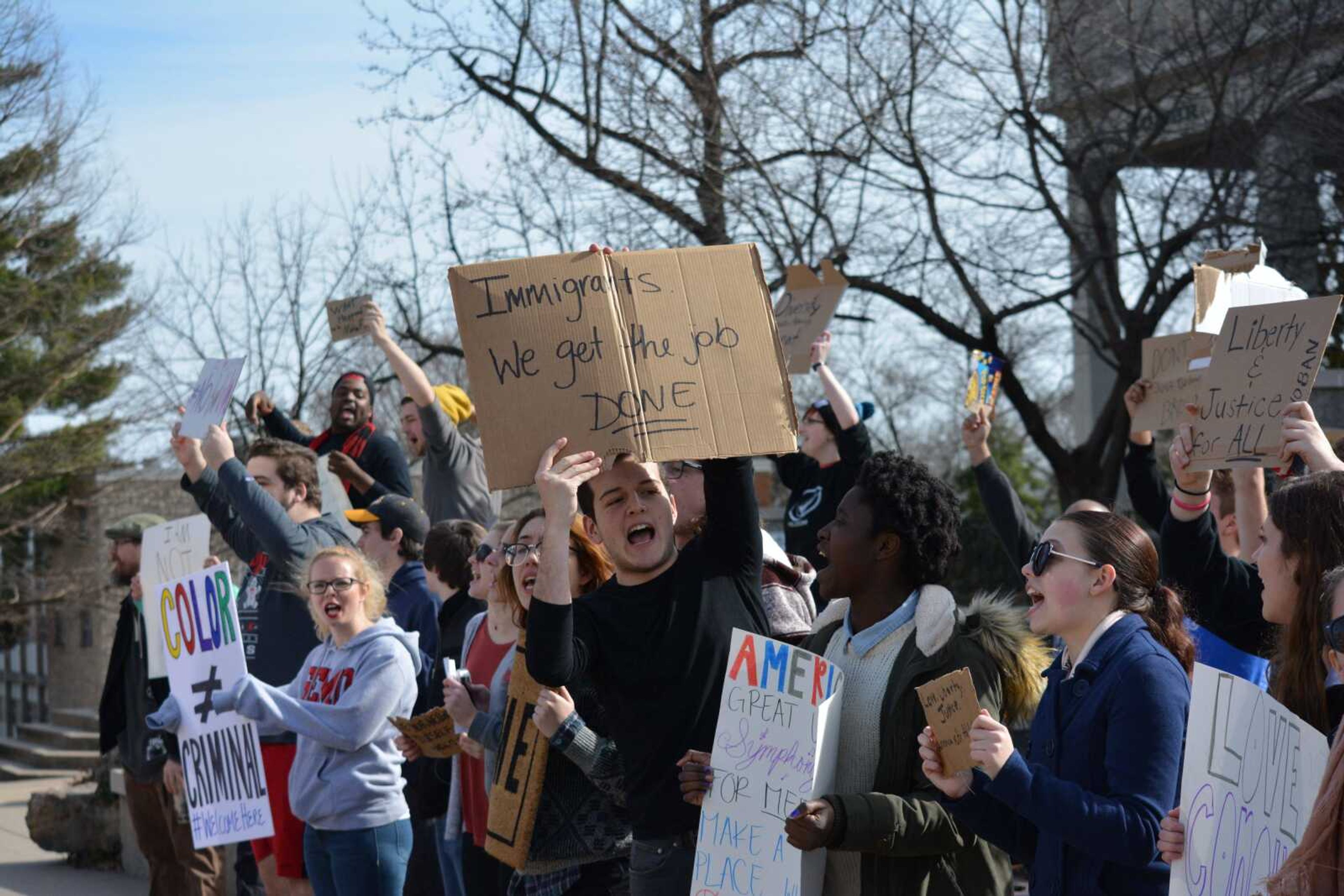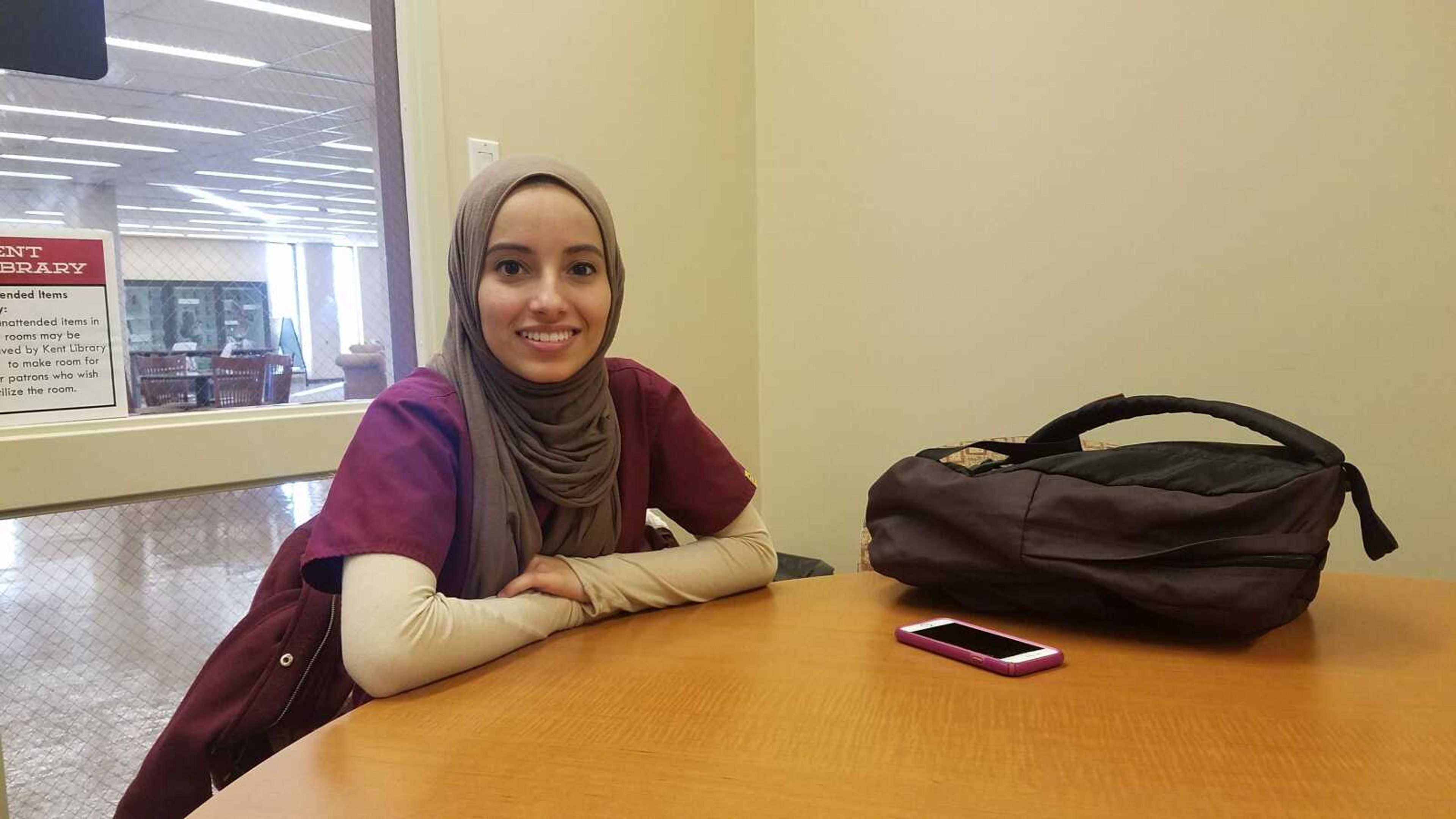Southeast Missouri State University sophomore Abrar Alemad was born in Yemen and came to the United States when she was 4 years old. Due to the executive order approved in January by President Donald Trump, she may soon have to leave both school and the U.S.
Her family came so her father could earn a master's and Ph.D. in journalism in 2002. When her family first came over it was just her parents and her. However, she now has four siblings who were born here and are citizens.
"From the get-go my family has always been, 'Once we leave there's a really high chance we can't come back,'" she said. "I am use to that but having it set for sure, if you step out of American soil you are not coming back and, I mean, I have four siblings that are citizens, so just that thought that traveling or whatever the case may be then they can't come back for good, even though they're citizens."
Her father has earned his degree and was given a year to "practice in the field," before having to leave. When her family first heard about the travel ban they talked with lawyers to see what their options were.
"They did say that, 'You're clear till next May, but chances of you staying after May is close to nothing,'" Alemad said. "The thing is even if we do go back to Yemen there is no airport to even land on."

Her family is looking into the options they have and they are considering Canada.
The one problem is wherever they go the paperwork and the wait time will be a problem.
Alemad and her parents have tried to apply for a green card and asylum, however, they have not been allowed.
"In the contract that he signed to come to the United States in the first place, in really fine print it said after you graduate you have to go back for four years and then you come back," she said. "And of course my dad didn't know about that until he tried to apply. With that going on it's stopping me from applying for citizenship away from my dad because right now I am directly linked to him. So I can't do anything."
Due to war in Yemen, her family has stayed longer than planned.
"The original plan was that he would come here, get his master's and get an education and we'd go back," Alemad said. "We never had the intention to stay here forever but because while we were here and he was getting his education there was a whole war going back home."
The travel ban and not being a citizen has affected her more than just trying to stay here.
"It affects me on day-to-day issues, it's not just about if I were to travel or if I were to whatever," she said.
Due to not being a citizen, she had problems with getting a driver's licence. She lost her health insurance from the state when she turned 19 because she is classified as international. She had trouble getting a job because she needed a social security card.
"I don't ever go into something knowing it's going to be easy," she said. "There's always going to be 'Oh, you need documents, oh, you need documents,' always and constantly. So at this point I literally have everything with me all the time."
Alemad has experience hate and backlash due to her religion all her life. Even walking on campus a person has pulled on her hijab.
"I am barely 5 foot, how intimidating do I have be for you to do something like that?" she said. "Of course, in the moment I was like, 'Oh, he wanted to feel the texture of my scarf,' or whatever trying to make 100 excuses, but at the end of the day it does come back to hate and the election had a huge part in that because it normalized stuff like this."
She has even had a teacher at Southeast tell her things could be easier if she took off her hijab. When Southeast President Carlos Vargas came out in support of students affected by the ban, Alemad sad it made her feel like she was not alone.
Students held a protest concerning the travel ban during common hour Feb. 1 in front of Kent Library.
"I was on my way to work and I saw that and I literally pulled over," Alemad said. "I called work and was like, 'Hey, I'm going to be late because I really want to be a part of this.'"
She said she was shocked to see the protest.
"I really felt like I was alone and I wasn't really expecting that at all," she said.
According to The Associated Press, the 9th Circuit Court of Appeals in San Francisco did not put President Donald Trump's ban into action. Trump is working to revise the ban, it which will include the original seven countries but not people who already have visas to the U.S.






